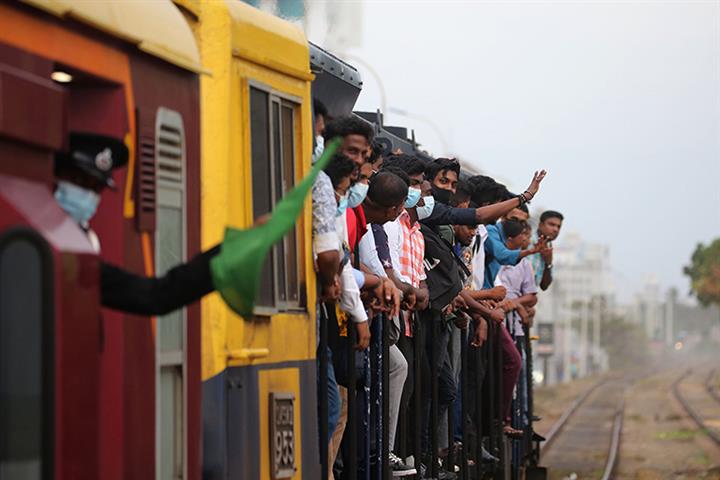 China's Supply Chains Are Protected Despite Sri Lanka, Execs Say
China's Supply Chains Are Protected Despite Sri Lanka, Execs Say(Yicai Global) July 15 -- Chinese companies' supply chains will not be majorly impacted by the ongoing political turmoil in Sri Lanka due to limited exposure, according to executives.
The reason is that the scale of Chinese businesses' operations in the South Asian country is not large, several executives said to Yicai Global.
The island country's future is uncertain. Sri Lankan Prime Minister Ranil Wickremesinghe declared a state of emergency on July 13 after President Gotabaya Rajapaksa and his wife fled to the Maldives amid protests in the country battling an economic crisis.
Other countries' industry chains are not likely to suffer huge losses even if Sri Lanka's commodity production is reduced, said Gao Gang, deputy director at the Sri Lanka Research Center at Sichuan University.
Exports of tea, rubber, coconuts, and cinnamon have been the major economic pillar of Sri Lanka for long but the commodity group does not really include irreplaceable raw materials for modern industries, Gao added.
One of the companies that spoke to Yicai Global is JA Solar Holdings, a solar panel manufacturer. Before this, the Sri Lankan government welcomed solar power companies to enter the country.
An insider at Trina Solar, another Chinese provider of photovoltaic solutions, said that the scale of impact on local operations is unknown but future investments will be adjusted based on the situation. However, the volume of Trina's business in Sri Lanka only accounts for a very small portion of all overseas markets, the person added.
Some companies are not directly linked to the local economy. China Merchants Port Group, which owns multiple berths in Sri Lanka, said on June 22 that cargo going through its local joint venture, Colombo International Container Terminals, is mainly transshipments, referring to parcels whose route involves intermediate stops.
The CICT wharf is now operating normally and steadily, China Merchants Port said. The firm will pay close attention to the political and economic situation of Sri Lanka, guarantee port stability, and constantly build Sri Lanka into a regional shipping hub of South Asia, it added.
One of Sri Lanka's most famous products is Ceylon tea. Some Chinese merchants said that they buy this type of black tea from third parties that process the leaves in the United Kingdom or Poland. Consequently, Sri Lanka’s turmoil has not yet been influencing China's supply.
Another tea merchant said that the company buys seeds from Sri Lanka and plants them in China and that its inventory is huge. Hence, the firm is not worrying about the short-term impacts of Sri Lanka's situation on its business.
China has bigger trade partners. The bilateral trade between China and Sri Lanka has been affected to some degree, Gao said. But Sri Lanka makes up a small portion of China's total foreign trade, he added.
China exports much more to the island country than it imports from there. Still, in the first half, such exports declined. The general trend had been rising steadily in the past few years as imports and exports between China and Sri Lanka rose to USD5.9 billion last year from USD4.6 billion in 2015.
Editor: Emmi Laine, Xiao Yi